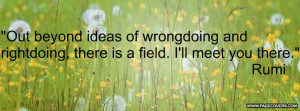HOW TO OVERCOME RESENTMENT AND CHANGE DIFFICULT DYNAMICS
Is resentment holding you back? What can you do to change the situation in a constructive and empowering way?
Years ago, when I was adapting to the nuances of the English language, I asked a friend “Do you say: “to bear a grudge or ‘to bear grudge’?” (i.e. without the ‘a’) His answer: “It depends how quickly you say it!” I still chuckle!
There is truth to the part about speed– at least insofar as the quicker we process our resentment, the quicker it will leave us. Bearing a grudge can affect us emotionally and physically through: stress, irritability, depression, bitterness, physical dis-ease and distrust of others.
It can make our communication aggressive, or passive-aggressive and sarcastic, and can have a knock-on effect on other relationships too.
Resentment can be the result of:
- A real or perceived injustice done to us
- An unmet need or expectation
- A power struggle between us and another
- Appeasing another out of fear, or guilt of saying ‘no’
The Weakening Stand Of: “I’m right, they’re wrong”:
When we hang onto resentment, we are really holding onto the rightness and validity of our actions, feelings and position, over the wrongness of theirs. Whether we repeatedly raise the issue with them, or we refuse to talk, our polarised approach is actually doing us a disservice.
Through it, we perpetuate a Drama Triangle of Victim, Persecutor and Rescuer, which in turn:
- Confirms our negative core beliefs
- Affects our self-esteem, and
- Maintains power-games
The longer we adhere to our position, the more forgiveness, or talking, feel like backing down.
So while our principled indignation may initially feel empowering, it can soon become disempowering and backfire, as we poison ourselves in the process.
A Cauldron Of Poison:
Resentment is the venomous gruel we brew in our minds; a pinch of wrath here, a bit of revenge there; envy, sadness, bitterness etc. Our incantations are formed of labels we attribute to the other (arrogant, selfish etc.), of our core beliefs and of soured promises we make about how to defend ourselves in the future.
As we stir this poison with care, we may occasionally dip some arrows into it, which we shoot out as passive-aggressive comments.
But most of all, we drink, eat, and breathe this poison ourselves – whether energetically or physically. We may physically sooth ourselves with alcohol, food or cigarettes. Or turn away from food, too full of the burning anger and hurt that twists in our minds and stomachs. Whatever our inclination, resentment is hurting us for as long as we don’t truly address it.
From resentment to a learning opportunity:
Perhaps we don’t meet them there, but we can meet ourselves – free of resentment. To get to that field we need to move away from blame and look for the learning and insight that dwells beneath the surface of our anger.
Here, we explore:
- Which of our core values and needs this event has touched. (E.g. our principle of, and need for reciprocity).
- The level of our self-esteem in relation to them. How have our feelings of superiority or inferiority towards them contributed to power games?
- Our underlying fears (e.g. fear of being wrong and excluded; of confrontation) and how we reacted as a result: fight, flight or freeze?
- What we are willing to change and what we would like them to do, know, or be aware of, in order to move forward?
Once we have established our needs, fears and our contribution to the situation, we can decide whether to speak or not.
If we do, this learning has provided us the insight and strength to express ourselves in a more empowered way. If we don’t, we can use our insights and courage to move on, and release ourselves (and them) from this debilitating poison.
When speaking is not possible or favorable:
Sometimes we are not able to speak to those concerned for a variety of reasons. If that’s the case, if we acknowledge our feelings, needs and fears, and understand where they come from, we can release both the resentment and change similar dynamics too.
(Beware of the fear of confrontation that may influence your decision to leave it).
If you are able to speak, consider these useful tools before doing so:
- Arrange to speak; don’t surprise them as this could backfire. Doing so can be empowering, however nervous we may feel.
- Own your perspective; speak in the first person: E.g. “When this happened I felt…” Not: “When you did… you made me feel….” (It’s not all their fault and no one can ‘make us’ feel anything).
- Own your contribution to the situation. Explore assumptions you may have made and any power games you may have played.
- Make positive requests and set your boundaries assertively. (When our requests are free of demands, guilt or punishment, we treat each other with respect, while still asserting our boundaries.)
If your requests are turned down, explore what doesn’t work for them and why. You may also need to find a way to meet your own needs without resentment.
Conclusion:
Resentment is by nature outward looking and becomes the broken record of litanies we play to ourselves, and our listeners. We can change difficult dynamics by seeing the situation as a learning experience from which we can grow, either alone, or together.
Humility, empathy, compassion and interconnection are some of the crops growing in Rumi’s field. Have we become too rigid by over adhering to our principles, or too slack – and now risk lacking integrity?
Remembering our own mistakes and considering how we would like to be treated when we make them, can move us away from blame.
As we find ourselves in this field of understanding, we can express our underlying needs, feelings and fears, to ourselves, and to the other. In so doing, instead of stirring the poison of resentment in our cauldron, we can now stir gratitude.





